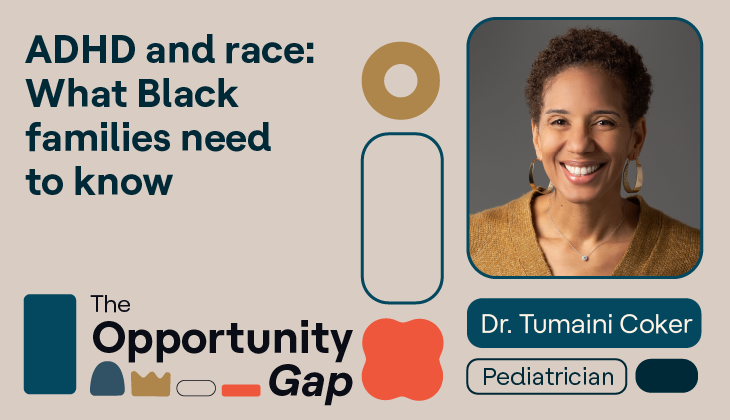Stay in the know
All our latest podcasts delivered right to your inbox.
Is ADHD more likely to be overlooked in Black kids? Or overdiagnosed? In this episode, pediatrician Dr. Tumaini Coker shares insights on ADHD and race.
Learn about Dr. Coker’s research into health equity and how clinics can help reduce the racial disparities in diagnosing and treating ADHD in children of color.
And get practical tips for parents from an expert who also has a personal connection to ADHD. Listen as Dr. Coker talks about stigma and other challenges her family faced when her twin boys showed signs of ADHD in grade school.
Research cited in this podcast
Related resources for families
Episode transcript
Tumaini: And the second-grade teacher stopped me and she said, "Aren't you a pediatrician?" And I said, "Yes, I am." And she said, "OK, so you have to know that your son is the most inattentive child I have had in 20 years in my classroom." She wasn't saying it in like a negative way. She was just being honest. And honestly, she was saying something that I knew. It was devastating.
Julian: From the Understood Podcast Network, this is "The Opportunity Gap." Kids of color who have ADHD and other common learning differences often face a double stigma. But there's a lot that families can do to address the opportunity gap in our communities. This podcast explains key issues and offers tips to help you advocate for your child.
My name is Julian Saavedra. I'm a father of two and an assistant principal in Philadelphia, where I've spent nearly 20 years working in public schools. I'll be your host.
Today's episode is all about ADHD. I know from talking to parents and teachers in my community that there's a lot of confusion about ADHD, especially among families of color. A lot of folks are wondering things like: How can I tell if my child has ADHD? Is ADHD getting overlooked? Or the opposite: Is ADHD getting overdiagnosed? We're going to answer all these questions about attention-deficit disorder, ADD, and attention-deficit hyperactivity disorder, ADHD. And we're also going to share practical tips for parents.
To help me unpack all of this, I'm so excited to introduce today's guest. Dr. Tumaini Coker is a superstar in the world of pediatrics. She's the head of general pediatrics at Seattle Children's Hospital and a pediatrics professor at the University of Washington School of Medicine. She's also a big researcher in the field of health equity. In particular, she has researched how racism and privilege affect ADHD treatment and diagnosis in Black and Latinx children.
And Tumaini also has a personal connection to ADHD. We're going to hear from her about how challenging it was for her own family to recognize and accept that her twin boys have ADHD. Welcome, Tumaini.
Tumaini: Thank you, Julian. It's great to be here with you.
Julian: Before we dive in, I try to ask this question to anybody that comes on. What's giving you life right now? What's really just helping you keep it going?
Tumaini: Well, when things feel stressful to me — and right now they do — but anyway, when things get stressful for me, I like to have something to look forward to, like a vacation or like a little bit of time off. And so for me, that's I have a few trips coming up. This weekend I'm going to take my kids to a family friend's quinceanera.
Julian: Whew. That sounds awesome. And a quince — a lot of dancing, a lot of delicious food, some pretty elaborate outfits.
Tumaini: Yeah, we get to dress up.
Julian: I know, right. I hear you, and having something to look forward to always keeps us going. So I appreciate that. So I really want to start talking about your personal connection to ADHD, because it really encapsulates some pretty effective and big themes impacting kids of color. Can you tell us about your son's diagnosis story?
Tumaini: Yeah, absolutely. So when when my twins were born, pretty soon after, I would say like definitely preschool time, I could see that particular one of them had symptoms of ADHD in terms of mostly the hyperactivity. And so it was just kind of me just observing, making that observation internally almost.
And then by the time second grade came around, the second-grade teacher stopped me and she said, "Aren't you a pediatrician?" And I said, "Yes, I am." And she said, "OK, so you have to know that your son is the most inattentive child I have had in 20 years in my classroom." She wasn't saying it in like a negative way. She was just being honest. And honestly, she was saying something that I knew. I knew that inattention was an issue for him. I knew that hyperactivity was an issue for him.
It was devastating. Until I got home and I was like, OK, I need to talk to my husband about this. You know, we had discussed it before. And his experience is very different because he's not a pediatrician. He doesn't have a background in child health or medicine. And so his background as a Black man is that as a child and his mother told him that the teachers tried to label him — this is her words, from him, at least — try to label him with ADHD, and try to hold him back. She was very happy that she didn't let that happen. And move forward, and I mean, he's a successful writer today. So I'm up against that a little bit.
Julian: Did he agree with what his mother's assessment was?
Tumaini: Yeah. 100%. Yeah. "Teachers tried to give me a diagnosis of ADHD, and I don't want that to happen to my sons." You know, I think in my generation and his generation, our parents dealt with — their biggest thing was just trying to protect particularly their Black sons from being held back because of racism. Because that happened in the school system. And I'm not saying that doesn't happen now. And, you know, you know this well way more than I do.
Julian: I appreciate that you brought that up. There's been so many conversations we've had on this podcast with different people and they've expressed the same thing. This stigma around ADHD and around learning and thinking differences in general in the Black and brown community, but especially with our Black boys. It's not something new. It's deeply embedded.
And so I'm interested to know. So, you know, your husband's coming to the table with that background. You go home and you explain this is what the teacher says. I'm assuming that you went through and you got the diagnosis. So what happens next?
Tumaini: So we did get the diagnosis, and his twin actually was diagnosed as well. He's much more mild, particularly in terms of his functional impairments from ADHD. But then the next kind of struggle, I think, or challenge that we had as parents was, OK, now what do we do with this diagnosis, and how do we treat the boys? And so from my background as a pediatrician, I know the data shows that medication is one of the most effective treatments for ADHD. I probably don't have to tell you the stigma that medication has to treat behavior in the Black community.
So then we tried, you know, medication for my son, the one that had more severe symptoms. And that first medication did not, you know — it had some side effects right away that we saw. And that, I think, delayed a lot because my husband wasn't prepared for that. And so — and that happens sometimes. Kids have to try, and I know this from my clinical experience, some do well on the very first medication. Some have to try a couple before we find the right one. And so that was a big learning lesson.
But I think the idea that, you know, telling both my husband and my parents, like, I think this is going to be best, let's try it and see what happens. And then I'll say the other really interesting part I noticed with my father, you know, I think at first he was kind of in the camp of "Is ADHD kind of a real thing?" as many folks are.
Julian: So that that's a perfect transition point to being crystal clear about what is ADHD. Can you explain what are the three types of ADHD? And specifically why the medical world stopped using "attention-deficit disorder" or "ADD"? And now they only use attention-deficit hyperactivity disorder, even if you as a person don't have the hyperactive kind of ADHD.
Tumaini: So I think what's important, Julian, is not for parents to get hung up in the types and the ADHD versus the ADD. What's important is what symptoms children have. And the symptoms are going to be around hyperactivity, impulsivity, and inattention. Inattention is just not really paying attention, sometimes staring into space, not being able to focus on things. The hyperactivity symptoms are always on the go, have to move all the time. And then the impulsivity is really acting before thinking, which even adults — and children — have problems with. But you'll see that in terms of all these symptoms affect the child's ability to function at home and at school.
Julian: Gotcha. And, you know, just making sure that everybody knows: To be somebody who has ADHD, you don't necessarily have to display all three symptoms. You can maybe display one or two or three. But hyperactivity is not necessarily a definitive symptom of ADHD for everybody who has it. Am I correct in saying that?
Tumaini: That's right. And so you may have some kids that are mostly inattentive and not hyperactive. And in some cases, we found that children who are more inattentive and not hyperactive and don't have as much impulsivity or impulse control problems, those kids are harder to pick up in schools because they're just quietly not doing stuff, versus the ones who are speaking out of turn and running around the classroom, maybe causing more distraction for the teacher.
Julian: Now, I know you describe your sons back in second grade, starting to display some of these symptoms. And typical classroom — many of these symptoms are very typical, right? Like it happens for many students, especially second graders. Thinking about our students of color, in your opinion, you know, how often do you think ADHD itself gets overlooked?
Tumaini: So the nice thing is that you don't have to take my opinion on this. This is what we have a lot of data and studies on. There was a recent review of multiple studies, including a study that I did, looking at data. So what we know is that for Black children and for Latino children, but more so Black children compared with white children, they are less likely to receive a diagnosis of ADHD. And among those who have a diagnosis, they are less likely to receive medication.
And I will say there are — this particular review looked at about 40 studies, might have been 41, if I'm exact. And while not every study showed that direction of a disparity, most did. So the majority of studies that looked at the difference in diagnosis for Black compared with white children showed they were less likely to be diagnosed. And the majority of studies that looked at medication also showed they were less likely to take medication.
Julian: Interesting, because my next question was going to be the flip side. Do you think that it sometimes is overdiagnosed? But it seems like the studies and the data shares, it's not.
Tumaini: Well, what we know from research is that the biggest problem is an underdiagnosis and undertreatment, and not the other way around. So that's clear from the studies that have been done. Now, are there kids that received an ADHD diagnosis that maybe would be explained by other things? So the symptoms that we talked about earlier, hyperactivity, impulsivity, inattention. Those are just symptoms, right? And so they could be caused by other things, maybe lack of sleep, or stressful or traumatic events at home that are causing those types of symptoms.
But when we look at the, you know, national data on diagnosis and treatment and compare Black versus white children, we're mostly seeing an underdiagnosis problem, not an overdiagnosis problem. And I think one other thing to think about is when there are symptoms of ADHD, it opens up a conversation that's important even if that child doesn't receive a diagnosis. It's that conversation with a family and OK, things aren't going as well as we want them to at school. Why is that?
But those are important conversations to have. And a lot of times they start in the pediatrician's office. But if parents don't know to bring those education-related problems that a child may be having to their pediatrician or other health care provider for their child, then that conversation can never happen.
Julian: That's a really good tip. And Tumaini's going to share some more later on, but making sure that the partnership between you and the pediatrician, and bringing up anything happening in school, is a really important step that needs to be taken.
So for all the listeners out there, I do want you to know that Tumaini is a leader in the field of health equity. Her research is funded by NIH, the National Institutes of Health. Really big deal in the world of research. So, flowers, hats off to you for that one. If I had a hat on, I would take it off.
Tumaini: Thank you, Julian.
Julian: But you were the lead author on a study called "Racial and Ethnic Disparities in ADHD Diagnosis and Treatment." Let's talk about the word "disparity." Your study was entitled "Racial and Ethnic Disparities." I wonder, did you ever think about using the word "racism" instead of "disparities"? And if so, why would you potentially use that instead of using "disparities"?
Tumaini: So I think racism is the cause of the disparities. So I don't know that instead of — it's really to describe the reason for. My work has really always focused on disparities, right? And so these are unfair differences that our patients and families endure. That at its core is because of racism.
You know, my experience in publishing is that early on in my career, the reasoning behind these racial disparities, you know, things like access to health care, trust with your relationship with the physician or primary care provider, things like preferences have been described as why there's a disparity in medication use, particularly for ADHD. But if you take all those things, right, we can bring that root back to racism.
So why is it that families don't have a primary care provider for their children? Why is it that they don't have a trusting relationship with that PCP? That goes back to a core of racism. And so I think particularly in this last few years where we have had this the wider world, right. And so in the Black community, we didn't need a racial reckoning because we've been living through the racism. But the wider world has had this reckoning with racism and acknowledgment that it is there in a way that was not before. And so that is also reflected in our journals, in science. And I think it's a very positive movement.
Julian: Do you see it continuing to illuminate how institutional racism is at the core of this, or do you see things remaining the same?
Tumaini: Well, I try to be an optimist, so I would say yes, although I think movement can be slow. As many good examples that I could provide you with as moving forward in understanding that structural racism is at the core of our health inequities for families of color, I can list a number of things that are inequitable because of racism at the same time.
So, yes, I think we are moving in the right direction. I think we have a long way to go. And it's not just — it can't just live within the health care system, although we have a lot of work in the health care system. Right? Because it's called structural racism. You know, there are things that impact our family's health that go well beyond health care. And I think that's important for ADHD, too.
You know this in working in schools and being a leader in schools, Black boys have behavioral problems in school. They are a number of times more likely to receive harsh punishment for those same behaviors that a white child will have. And those are some of the consequences, I think, this juxtaposition of the pediatrician's office and school, that if we're not being able to have those conversations with families about behavioral issues — so impulsivity and hyperactivity, and particularly the impulsivity pieces of ADHD.
If I can make a diagnosis and then that school knows that this child has a diagnosis and they have these impulse control behaviors, maybe they can have — maybe they have a 504 plan at school that allows them to get accommodations for things that help them reduce those impulsivities, or at least recognize this is what's happening. But if that's not recognized and they're just seen as being bad, then they get suspended. And then as they get older, then they don't have as much confidence in school and they're not in school, get into trouble.
Julian: Right. When I think about the power of Black doctors and I think about the power of how that juxtaposition and intersection of race and socioeconomics comes into play, I'm interested to hear more about your experience. It's like you're a doctor. I'm an assistant principal at a school. We both have access to incredible health care for our kids. Right. We can take time off from our jobs if we need to. I took my daughter to the doctor today. Didn't think anything of it. Not every family has time to do that. They don't have access to health care.
So I'm interested to know, given that we have privilege ourselves based on our socioeconomic status, I know that you do work with community clinics and other areas of help in low-income communities. What kind of things are actually helping? What changes are happening that you see that are helping in those community clinics and in those situations?
Tumaini: One of the things that I've seen that helps is expanding who's providing the care. So we know that most Black families, because of our workforce, are not going to have a Black pediatrician. Right? We can look at the numbers of Black doctors, right? We need — it's not there. And so some of the work that I am most passionate about is we've done work to include community health workers into the primary care team and community clinics that serve primarily a Medicaid population or a publicly insured population of children and families.
And so that person is, as a community health worker, has a community connection, right? They're a community member, but they receive training to work in the clinic space with the pediatrician. They can provide education and guidance to the families. They can identify social needs and help connect those families to resources in their community to help. And so how this relates back to ADHD and even school is sometimes parents may not have that relationship with their pediatrician, right? Where they want to talk about all of the concerns.
But if they can bring it up to someone else on the team that they've built a relationship with, and then that person can help? You know what? Let me help walk you through the process of getting that IEP at school. Let's go together. Here's what you need to do. Those types of things. So that child that's having problems, you know, academically at school can get a 504 plan or the IEP that can allow them to have the support they need to be most successful.
So that's I think one of the things that we can do is expand the team of providers — the team that provides primary care. And that can include things like community health workers, health educators, even crossing sectors, bringing in folks that have more expertise in education and development. So there's so many ways to build that team. Yeah, that's I think, one of the critical things that we can do just on the clinic side.
Julian: Tumaini is going to give us a few tips just to close us out about if I'm a parent or I'm a parenting adult, I'm a guardian — somebody in a child's life that needs to be advocated for. Tumaini, can you give us just a few clear and specific actionable tips parents can do, or parenting adults can do, to ensure that our students of color are getting accurately diagnosed and are getting the treatment they need.
Tumaini: So I would start by know what's happening at school with your child. Right. And so that is asking the questions to the teacher, finding out the details even before grades are provided or even if grades are provided. What are the details? Have a set of questions so that you know what's happening at school. And then take that information, when it's of concern, to your pediatrician or to the pediatric health care provider that you're seeing for your child. That should be a part of that well-child care visit, that checkup that you have once a year before school starts so that you can have sports or whatever it is.
Make sure you talk about academics and school function and homework. And even if the provider's not bringing it up, you say, "I want to make sure to talk about school. Here are the problems that I'm seeing at school. Let's talk about that." And when you do talk about that, if you're concerned about ADHD, make sure to talk about other things that can impact those symptoms.
So your pediatrician should know about sleep. Is sleep an issue? Are there any household stressors that could be impacting your child? Those are the kind of things to just write down before you get to that child care visit, to make sure that you talk about with your pediatrician.
And then if you get a diagnosis of ADHD, I think it's important to talk about both medication and behavioral treatment. And so one thing that can be really helpful to parents is something that is sometimes called parenting training, but it's really about what are the skills and strategies that the parent can have to help their child succeed. And so those are a couple of things to make sure to talk about at your pediatrician visits.
And I think some other things to think about are just regardless of whether that's a diagnosis of ADHD or not, these elements of that kind of parenting, behavioral therapy, or treatment is really about spending time with the child, even if it's a few minutes a day. We are all really busy parents, especially — there are stressors from work and other kids. That's really a big piece of it.
And then when there is — particularly the child with ADHD, they're going to have a lot of negative feedback on things. And so part of that is just finding those small moments. "I really like the way that you focused on that one math problem the whole time and finished it." Right? Finding a way to focus on the small things and give them kind of that in-the-moment little boost.
Julian: Positive reinforcement. Got it. I wish we could talk more. I absolutely loved our conversation. This is such an important topic to bring up. You have so much experience, whether it's from the parenting lens or from your research. So I cannot thank you enough. I really appreciate it.
But I also just want the listeners to know that our show notes include links to three really helpful articles. First article is "Common Signs of ADHD at Different Ages." The second article is "What an In-Depth ADHD Evaluation Should Look Like." And the last article, "How Can I Find Out If My Child Was Misdiagnosed With ADHD?" So be sure to check these out and keep asking questions. Keep asking questions to help you figure out what your child needs to thrive. Ladies and gentlemen, Dr. Tumaini Coker.
Tumaini: Thank you, Julian. It was really great to be with you.
Julian: You've been listening to "The Opportunity Gap" from the Understood Podcast Network. This show is for you. So we want to make sure you're getting what you need. Is there a topic you'd like us to cover? We want to hear from you. Email us at OpportunityGap@Understood.org.
If you want to learn more about the topics we covered today, check out the show notes for this episode. We include more resources as well as links to anything we mentioned in the episode.
Understood.org is a resource dedicated to helping people who learn and think differently discover their potential and thrive. Learn more at Understood.org/mission.
"The Opportunity Gap" is produced by Julie Rawe and edited by Cin Pim. Briana Berry is our production director. Our theme music was written by Justin D. Wright, who also mixes the show. For the Understood Podcast Network, Laura Key is our editorial director, Scott Cocchiere is our creative director, and Seth Melnick is our executive producer. Thanks for listening and see you next time.
Host
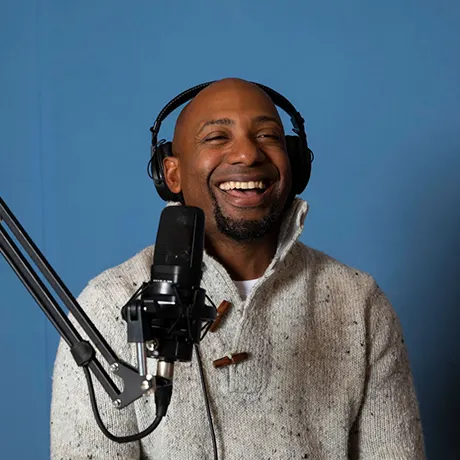
Julian Saavedra, MA
is a school administrator who has spent 15 years teaching in urban settings, focusing on social-emotional awareness, cultural and ethnic diversity, and experiential learning.
Latest episodes
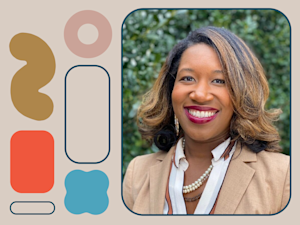
April 10, 2024
Myths and misinformation about ADHD and learning differences show up all the time on social media. Find out what’s fact and what’s fiction, and learn about the impact of these myths on kids of color.
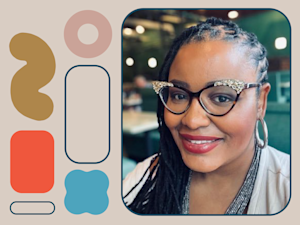
March 27, 2024
ADHD advocate René Brooks was diagnosed with ADHD twice as a child. But it wasn’t until she was diagnosed again as an adult that she finally got support. Listen to her story.
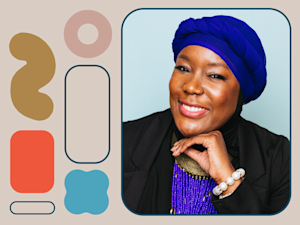
March 13, 2024
Learn about the steps to getting an IEP and starting your child’s special education program. Get tips from an expert.

February 14, 2024
Learn how four members of the Understood team are making an impact in the lives of people with learning and thinking differences.
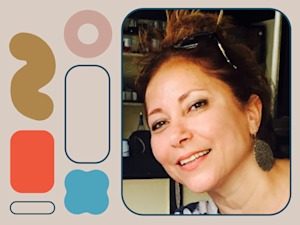
January 31, 2024
How can high-schoolers and their families prepare for life after high school? Get advice and tips from a college advisor.

January 17, 2024
Some kids don’t like to share information about their school day. Get tips on how to get them to open up and share. These tips and conversation starters can help your child to open up.
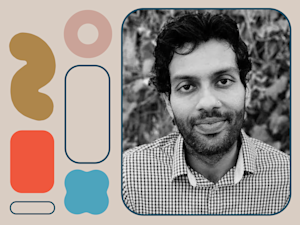
January 3, 2024
The school-to-prison pipeline has disrupted education for kids of color for a long time. Learn what the pipeline is and why it’s critical to end it.
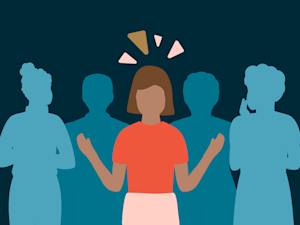
December 6, 2023
Telling your relatives about your child’s challenges can be difficult. Get tips on how to make the talk easier to manage.

November 8, 2023
For some students of color, feeling mistreated by teachers is a common experience — and it shouldn’t be. Learn how to help kids self-advocate.

October 25, 2023
Dyslexia is a common learning difference that impacts many kids of color. Hear from an expert and learn ways to support kids in the classroom.
